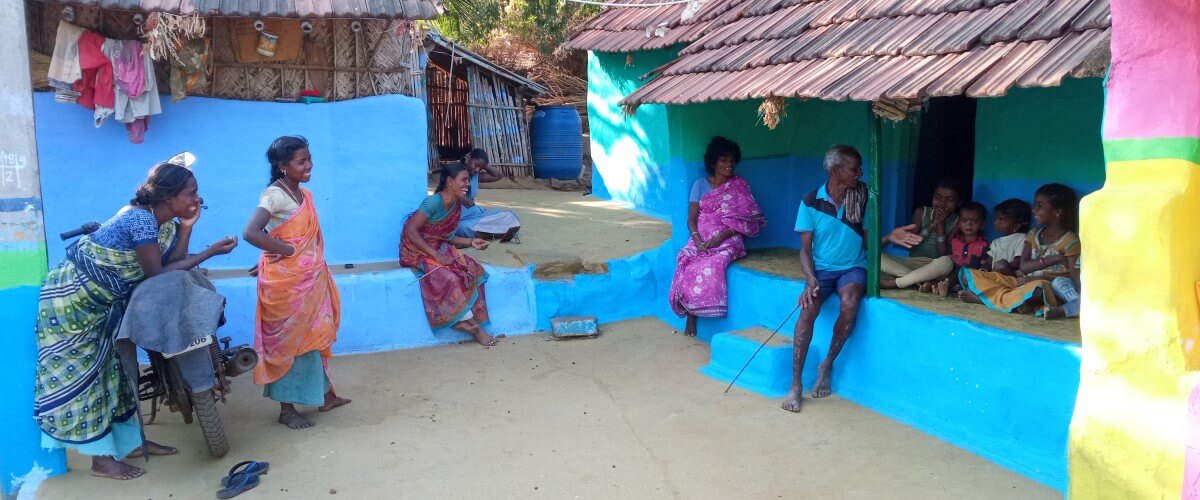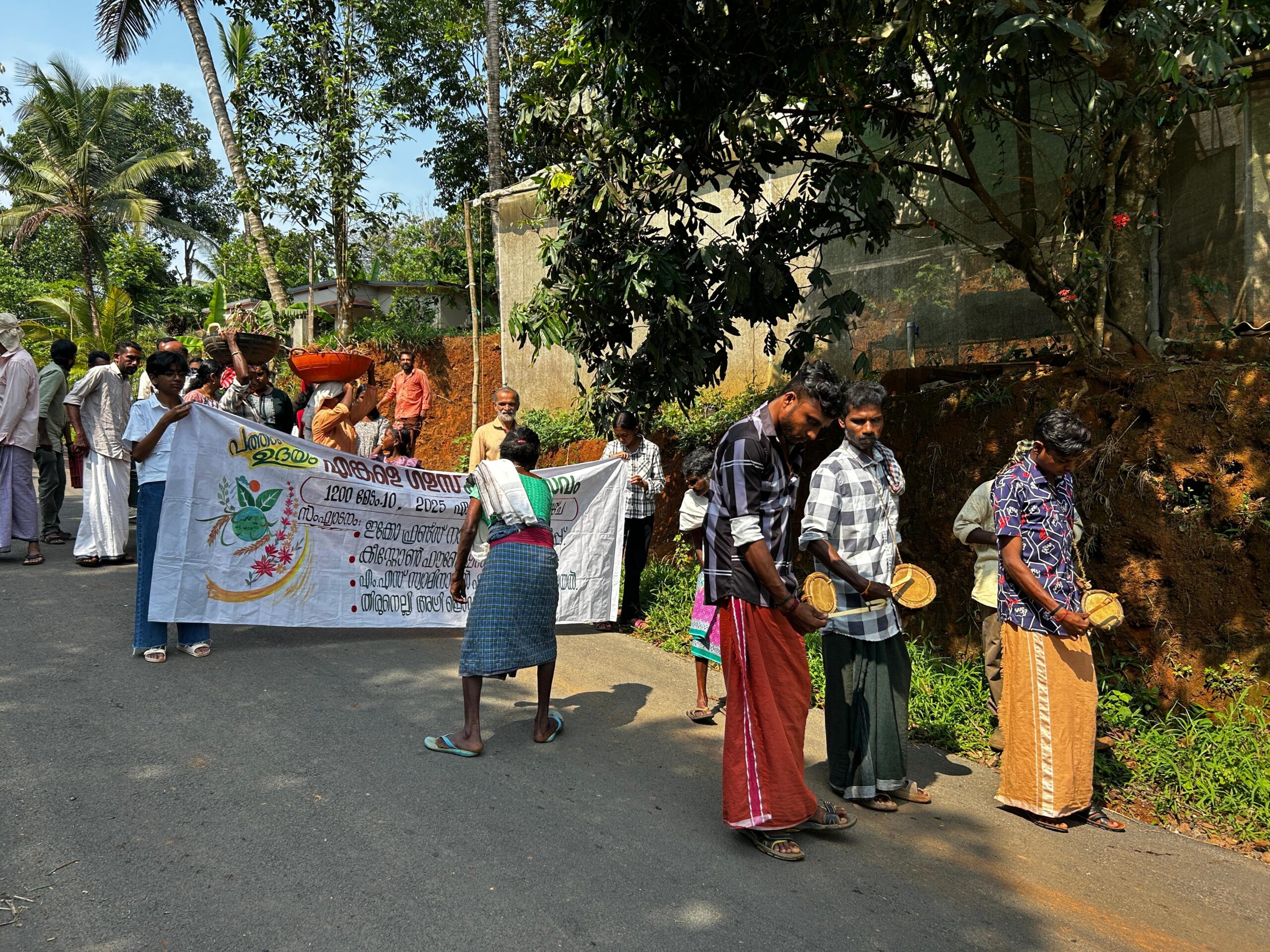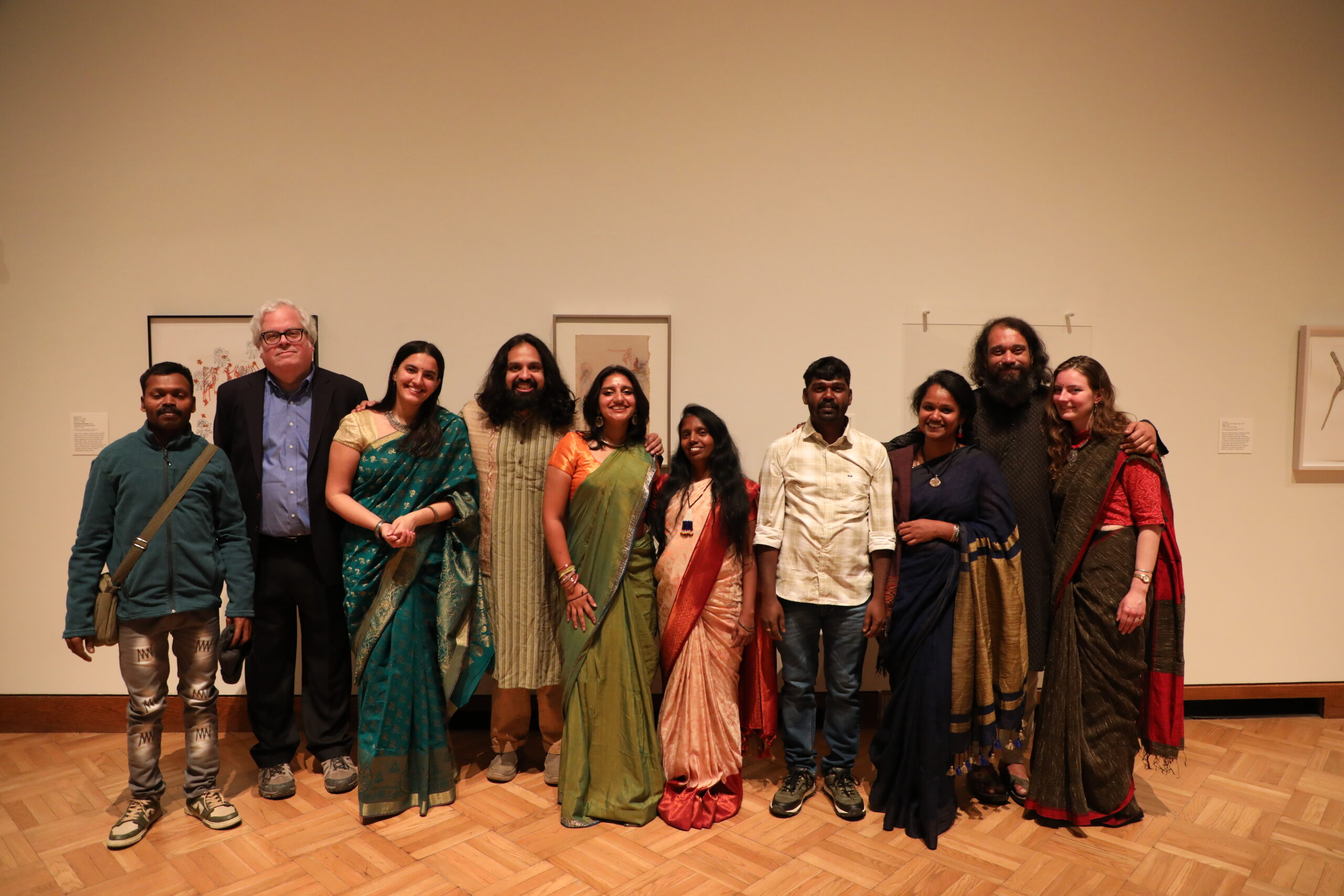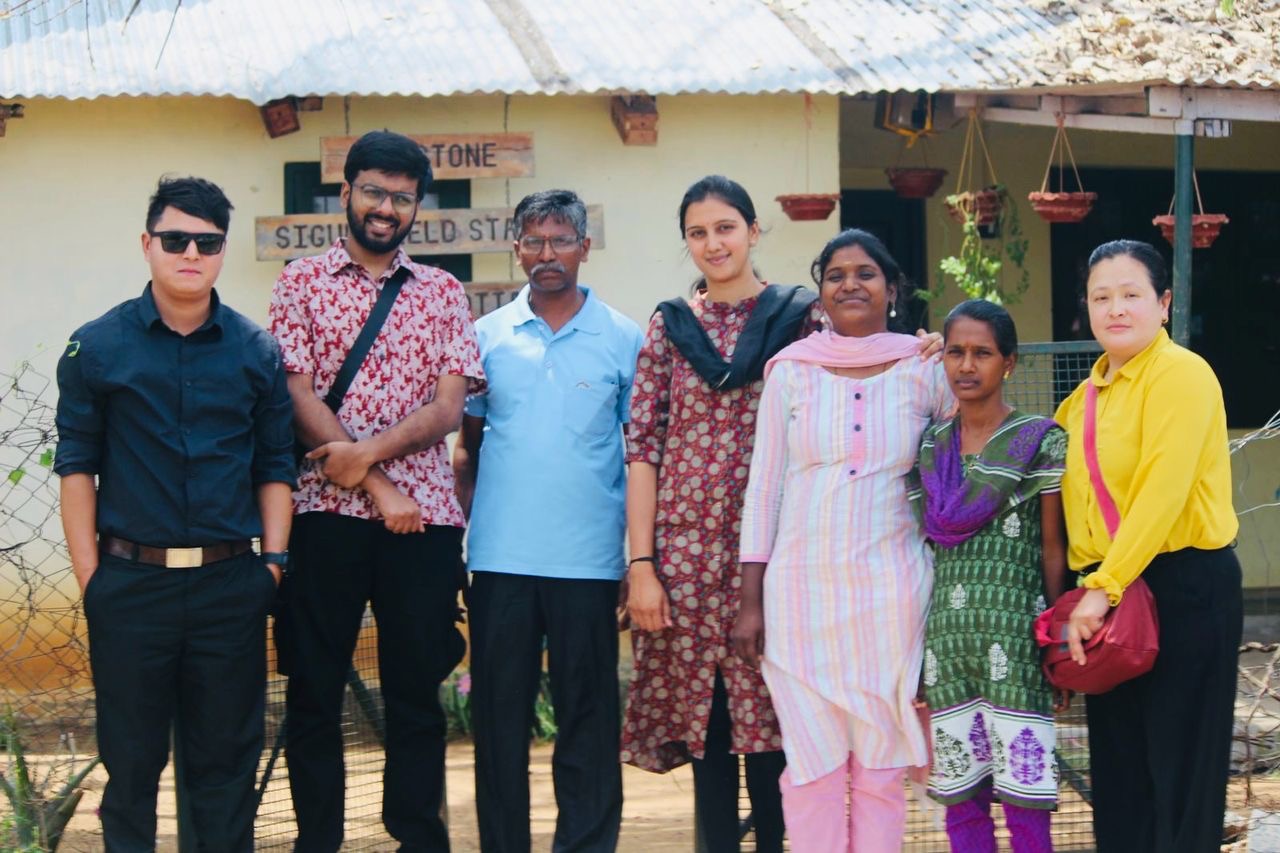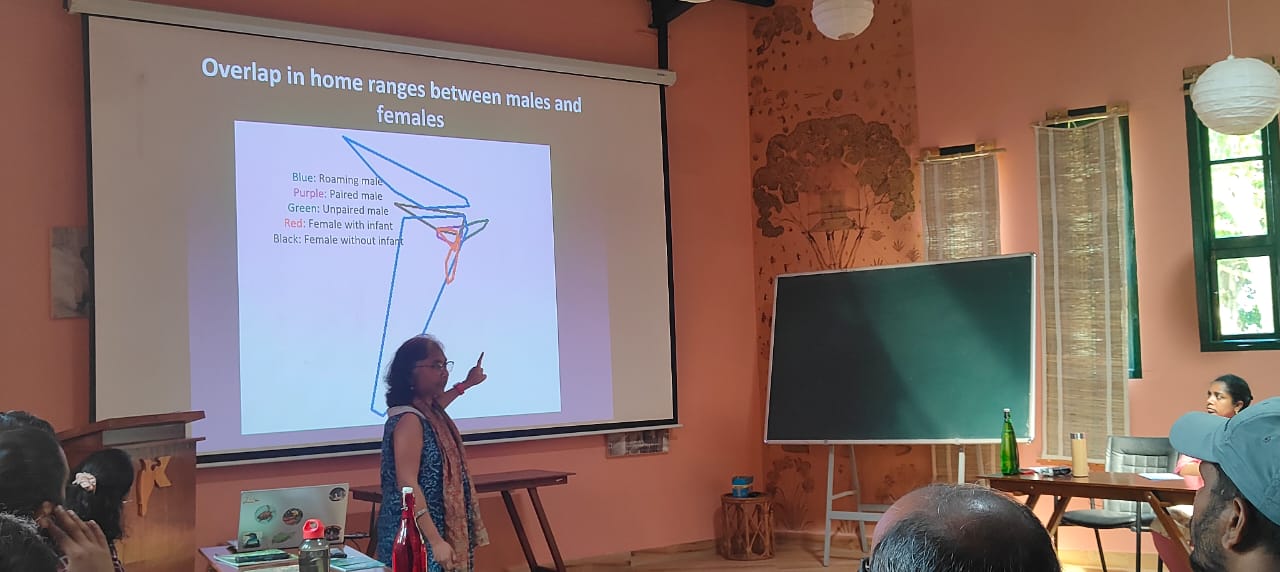Our Sathyamangalam field centre organised sessions where village elders sat with children as young as three up to 12 years of age and spoke about traditional and organic agriculture, its decline despite the gentleness of such practices on soil and water. Lakshmiamma and Maare were the two elders that delivered this session in Urali language to 17 children.
Vijayan also shared stories of pangolins and slender lorises, and warnings against their hunting. Lakshmiamma taught about the habitats that pangolins are found in, and what they consume. She mentioned that they were commonly found when she was young. Photographs and videos of the animals were shown, and English, Tamil, and local names identified. The children, however, had never seen or heard of such animals, an indicator of populations declining over time. Lakshmiamma remarked that in her entire life, she has seen the slender loris only twice and that it is an extremely rare animal to spot. Both Vijayan and Lakhmi have spotted it in bamboo forests only. Vijayan’s relative who was present at the event, recounted his experience of sighting three lorises at once!
The elders also spoke of ancient forest temples and rituals. They recalled the history of Asagithi kombai, a tradition once followed by women on their period who do not go into the forest for three days. They also recalled the emergence of the name of the village: more than 60 years ago, there was a non-tribal referred to as the Asagar (Vanniyar or Vannar in Tamil) who took all the clothes from the tribal people (mostly white-colored), carried it on a donkey to Asagithi maduvu (spring or pond), washed them, and brought it back to the people. He was given ragi (finger millet) and a small amount of cash every year. In Vijayan’s village, Kanakundur, this practice still exists and the Asagar is paid Rs 1,000 and seven kilos of ragi each year. The Vannar has a relationship with the tribe in other ways as well. He provides the white veshti that is used in temple festivals or funerals. He provides a sari to tie as decoration in weddings, and holds the pandal in temple events.
We live in a world where traditional and indigenous knowledge is considered inferior, a perception that is a result of violent colonial histories. Rural and tribal children are increasingly enrolled in schools with ‘urban’ curricula that don’t impart knowledge of their ancestors. This loss of knowledge is exacerbated by unchecked industrialisation and poverty, forcing communities to move away from their traditional livelihoods and other practices, which are no longer viable sources of income. These village elder programmes are necessary in encouraging passing on of knowledge before it is completely lost with the generations of the past.

